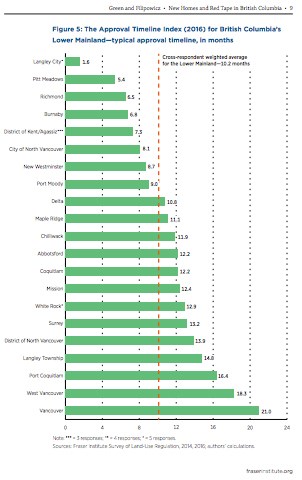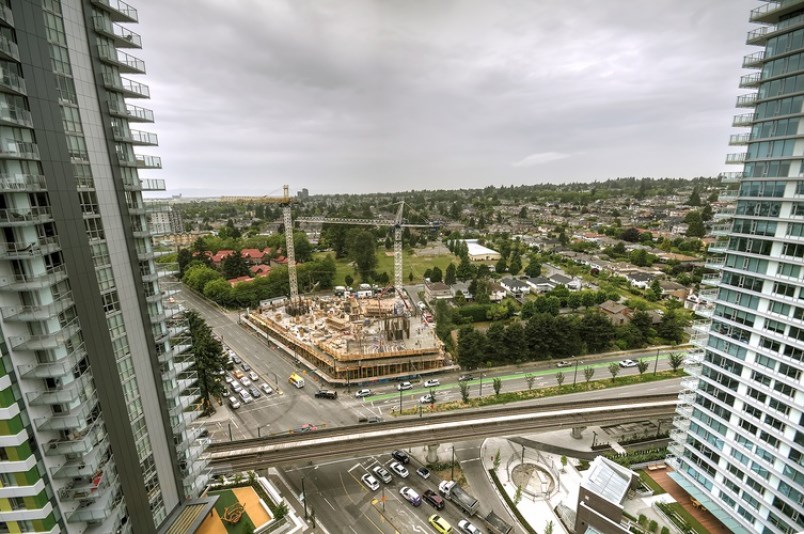It can take more than 10 times as long to get a housing proposal passed in Vancouver than it does in Langley, a new report by the Fraser Institute says.
And, the report says, the regulations that cause the delays add almost $78,000 for every new unit of housing built in Vancouver. In Port Moody, New Westminster, Pitt Meadows and Langley, that cost is less than $10,000. Next door in Burnaby, typical compliance costs are $15,000.
The study’s survey of homebuilders ranks Vancouver as the most heavily regulated municipality in the Lower Mainland for residential development. West Vancouver and Port Coquitlam take second and third spots.
These rules are stifling new home-building, the report says.
“Increasing housing supply in Vancouver could help lower prices, but unfortunately there are a lot of confusing and costly regulations on the books that deter new homes from being built,” said Kenneth Green, a senior research director at the Fraser Institute and co-author of the study.
The study is called New Homes and Red Tape in British Columbia: Residential Land-Use Regulation in the Lower Mainland. It surveyed homebuilders and developers in the fall of 2014 and spring of 2016, using a set of questions including approval times, compliance costs, fees and the effects of zoning bylaws. The study applies weighting to whether the development is a single-family dwelling or condominium development "to more closely reflect typical experiences," the report says.
It says Vancouver has the longest building permit approval times in the Lower Mainland, with an average of 21 months followed by West Vancouver (18.3 months) and Surrey (13.2 months). The City of Langley had the shortest approval times, with typical approvals averaging less than two months. These findings “should worry anyone concerned about high home prices in the city because the added time means extra costs that are ultimately passed on to homebuyers,” Green said.

Vancouver also has the highest level of opposition to new residential development from city council and community groups. Moreover, the city has the highest costs, on average, to comply with residential development regulations. Estimates show it costs almost $78,000 for every new unit of housing built, whereas the typical cost of regulatory compliance in Port Moody, New Westminster, Pitt Meadows and the City of Langley is less than $10,000 per unit. Even in neighbouring Burnaby, typical compliance costs are approximately $15,000 per unit of new housing.
“If municipal councils in the Lower Mainland, especially in Vancouver, really want to increase the supply of housing, they should consider more sound regulatory regimes that encourage—not stifle—residential development,” Green said.
In a recent Business in Vancouver column, Peter Austin of Austin Real Estate Consultants argues that a housing supply shortage
“Urban Analytics estimates that there will potentially be 3,500 units coming on stream in 2017 in the city, which is 292 per month, significantly below the last two years when demand exceeded supply," he writes.
“Nineteen new condominium projects totalling 1,727 units were launched in 2016 on Vancouver’s west side. By the end of December more than 75 per cent were sold. In East Vancouver, 99 per cent sold out of 341 on the market, and in downtown 94 per cent of 876 units released were sold.
“A 25 per cent drop in new listings for January-February 2017 (475 per month) compared with the same period in 2016 has further tightened the situation for new condominiums.”
Austin said that with demand outstripping supply of new housing, prices will continue to rise.



